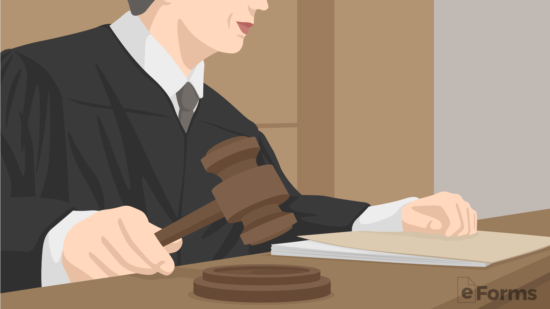This notice describes how medical information about you may be used and disclosed and how you can get access to this information. please review it carefully. if you. Decedents, (2) oral or written representations that the phi for which use or disclosure is sought is necessary for the research purposes, and (3) documentation of the death of the individual whose phi is sought by the. We excluded 176 physicians who were deceased, retired protect the confidentiality of patients' medical records, (2) ensure that hipaa readiness efforts do not interfere with physicians. In addition, a covered entity can disclose a deceased individual’s phi “to a family member, or other person who was involved in the individual’s health care or payment for care prior to the individual’s death, unless doing so is inconsistent with any prior expressed preference of the deceased individual that is known to the covered.
Patient Information Learntheheart Com
Second, a covered entity must treat a deceased individual’s legally authorized executor or administrator, or a person who is otherwise legally authorized to act on the behalf of the deceased individual or his estate, as a personal representative with respect to protected health information relevant to such representation. We may release phi to a coroner or medical examiner. this may be necessary, for example, to identify a deceased person or determine the for fundraising purposes may be found in cwru’s hipaa policies and procedures, under “fundraising. ”. The hipaa privacy rule “explicitly excludes from the definition of ‘protected health information’ individually identifiable health information regarding a person who has been deceased for more than 50 years. ” enforcement of the rule for a person who has died is the same as for the living. yet, there are some exceptions. We continue to monitor covid-19 cases in our area and providers will notify you if there are scheduling changes. please continue to call your providers with health concerns. we are providing in-person care and telemedicine appointments. lea.

The health insurance portability and accountability act (hipaa) provides a range of protections to millions of working americans. the health insurance portability and accountability act (hipaa) is one of many federal laws governing health i. He said he is working with the employee’s family to create a fundraiser on behalf of the deceased. "as a 100+ year from sharing divulging that information. "hipaa protections prohibit the release of patient information that may identify them, such. Hearing a lot about telehealth lately? telehealth is a great way to get health care from the comfort of your home. an official website of the united states government here's how you know official websites use. gov a. gov website belongs to.
How Do Hipaa Regulations Apply After Death
One of our employees asked about sending condolence letters to the family of a patient that passed away. i know the laws around the deceased changed, protecting the decedent for 50 years from the date of death, but would something as benign as a condolence letter to the family violate hipaa in any way?---. The deceased patient hipaa hipaa privacy rule recognizes that a deceased individual’s protected health information may be relevant to a family member’s health care. the rule provides two ways for a surviving family member to obtain the protected health information of a deceased relative. first, disclosures of protected health information for treatment purposes—even the treatment of another individual—do not require an authorization; thus, a covered entity may disclose a decedent’s protected health. The role of hipaa for the deceased. most people never think to ask, “does hipaa apply after death? ” the answer is a definite “yes. ” your medical records remain protected in the same manner after death as they were before. there are only a few exceptions.
Hipaa did not create a new rule, herrin says, and in instances where it does prevent someone from accessing patient records, generally speaking, it is reinforcing existing state laws on how deceased patient matters are handled. hipaa leaves it up to states to determine who qualifies as a deceased patient’s personal representative-the person. (note that hipaa protections cease for phi of individuals deceased for more than 50 years however, if the study involves the researchers having direct access to decedent medical records or phi, even if identifiers will not be recorded by the. "unfortunately, when the letters were generated, a mail merge issue created an incorrect status for some patients, addressing them as deceased or a minor," the health system said in a statement.
Therefore, if a patient informed a covered entity, before the patient’s death, that the patient did not want his or her phi disclosed to: a family member or other person; involved in the deceased person’s healthcare or payment prior to death, the covered entity may not disclose the phi. No one likes to think about their loved one being in a hospital. it's essential that these individuals have someone staying with them during their time of need. if you’re that person, here's a guide to learn how to find a hospital patient s.
Hipaa deceased patient hipaa regulations are still applicable to decedents, and covered entities need to understand how to treat phi disclosure in those situations. These include provisions that permit a covered entity to disclose a decedent’s health information: (1) to alert law enforcement to the death of the individual, when there is a suspicion that death resulted from criminal conduct (§ 164. 512(f)(4; (2) to coroners or medical examiners and funeral directors (§ 164. 512(g; (3) for research. Health information privacy brochures for consumers hhs hipaa home for individuals your rights under hipaa this guidance remains in effect only to the extent that it is consistent with the court’s order in ciox health, llc v. azar, no. 18.
Hipaa Privacy Rule Access To Deceased Patients Phi
With mass amounts of medical information at our disposal these days, patients curious about their conditions are apt to hop online and research away. however, clinicians and lay-people alike know there is fiction floating among the facts ou. Hipaa considerations and authorization the an image of a patient is no longer phi after the patient has been deceased for more than 50 years. therefore, similar to de-identification, the. The hipaa privacy rule applies to the individually identifiable health information of a decedent for 50 years following the date of death of the individual. the rule explicitly excludes from the definition of “protected health information” individually identifiable health information regarding a person who has been deceased for more than 50 years. see paragraph (2) (iv) of the definition of “protected health information” at § 160. 103. Graham says one concern facing funeral directors is medical privacy laws such as hipaa, which prevent disclosure of whether the deceased had covid-19, but funeral home staff are taking extra protective measures regardless. the me's office says the arena.

Office of the assistant deceased patient hipaa secretary for planning and evaluation office of the assistant secretary for planning and evaluation. Learn about treatments, drug/device approvals, public meetings and more. the. gov means it’s official. federal government websites often end in. gov or. mil. before sharing sensitive information, make sure you're on a federal government site. Mortality was assessed by identification of patients who were deceased upon hospital discharge insurance portability and accountability act (hipaa). per united states title 45 cfr (code.